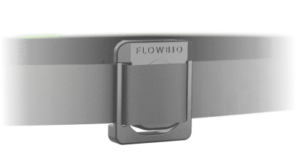In today’s fast-paced world, staying hydrated is more than just a health tip, it’s a necessity.
As technology continues to advance, hydration trackers are emerging as essential tools in our daily lives. These innovative devices are designed to monitor your water intake, ensuring that you stay optimally hydrated throughout the day.
But hydration tracking is about more than just drinking water; it’s about harnessing data to improve overall health and well-being.
For cyclists and runners, hydration plays a critical role in performance and recovery. Dehydration, even at mild levels, can significantly impact endurance, focus, and overall energy levels.
Hydration trackers are particularly beneficial for these athletes, as they provide real-time data that can be used to optimize hydration strategies before, during, and after workouts.
Maximizing Performance through Data-Driven Hydration tracker
Hydration trackers for cyclists and runners often come equipped with advanced sensors that monitor fluid intake, sweat loss, and even electrolyte balance. By collecting and analyzing this data, athletes can better understand their unique hydration needs.
For instance, the data can reveal patterns such as how much water is lost through sweat during different types of workouts or excessive heat-weather conditions. This insight allows athletes to tailor their hydration plans, ensuring they are consuming the right amount of fluids to sustain peak performance.
Preventing Dehydration and Heat-Related Illnesses
One of the most significant benefits of hydration trackers is their ability to alert athletes when they need to hydrate, preventing dehydration before it becomes a problem. For cyclists and runners, especially those training in hot or humid environments, this is crucial.
Dehydration can lead to heat exhaustion or even heatstroke, both of which are serious conditions that can derail training or lead to long-term health issues. By staying ahead of dehydration, athletes can train more safely and effectively.
Personalized Insights for Optimal Hydration
Each athlete is unique, and what proves effective for one may not be suitable for another. Hydration trackers provide personalized insights based on individual data, allowing cyclists and runners to fine-tune their hydration strategies.
This personalized approach can lead to better recovery times, reduced muscle cramps, and improved overall endurance. Additionally, some advanced hydration trackers integrate with other fitness apps and wearables, providing a holistic view of an athlete’s health and performance.
Achieving Long-Term Health and Fitness Goals
The data collected by hydration trackers doesn’t just benefit athletes in the short term; it also contributes to long-term health and fitness goals. By consistently monitoring and adjusting hydration levels, athletes can reduce the risk of chronic dehydration, which can lead to kidney problems, digestive issues, and impaired cognitive function.
Moreover, maintaining proper hydration supports overall well-being, leading to better sleep, enhanced mental clarity, and a stronger immune system.
The Future of Hydration Tracking for Athletes
As technology continues to evolve, the future of hydration tracking looks promising. We can expect to see even more sophisticated devices that offer deeper insights into hydration needs, perhaps even predicting hydration requirements based on environmental conditions and physical exertion levels.
For cyclists and runners committed to achieving their best, embracing hydration tracking technology is not just a trend, it’s a game-changer.
Hydration Trackers on the Market
As of August 2024, there are three prominent brands with active hydration tracking products available.

These brands include advanced devices that monitor hydration in real-time, catering primarily to athletes and fitness enthusiasts.
With technology like sweat-analysis biosensors, these trackers provide personalized insights into fluid and electrolyte levels, helping users maintain optimal hydration and improve their performance during physical activities.
Hydration trackers are still in the early stages of development, and manufacturers need to invest in further research and development to improve their efficiency. Additionally, they must work on reducing the cost to make these devices more accessible to the average fitness enthusiast, as they are currently priced on the higher side.
Significant marketing efforts will also be required to target fitness enthusiasts and raise awareness about these innovative devices, so they can benefit from the advancements in hydration tracking technology.
“See you later, thirsty!” 😄💧

Leave a Reply